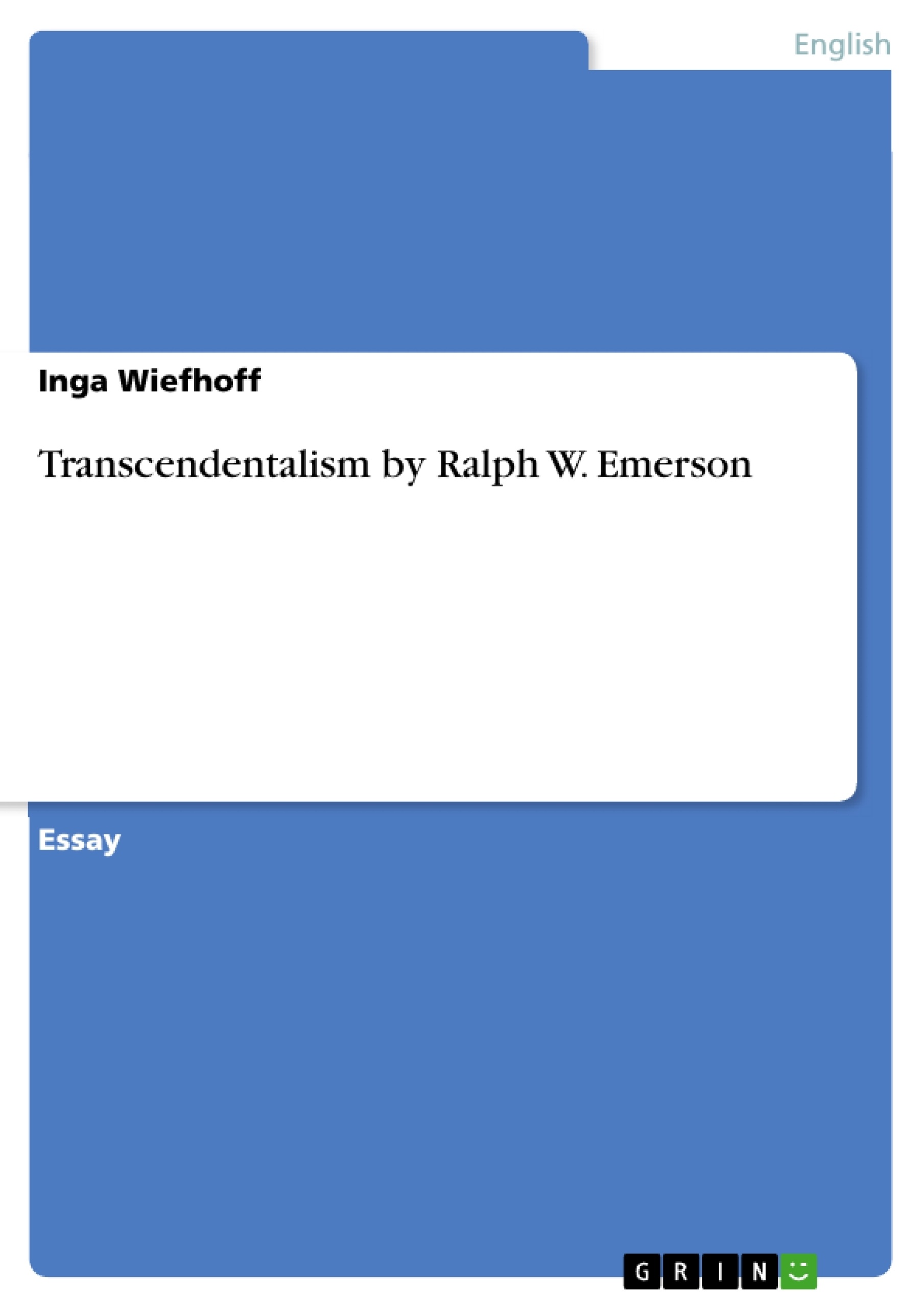Ralph Waldo Emerson lived from 1803 until 1882. In 1821, he graduated from Harvard. The death of his wife after being married for one and a half years and his professional failure as a Unitarian minister lead to a personal crisis. At this time of his life, Emerson traveled to Europe. Here, his conviction that God can be found within the human soul develops. At the same time, his interest in nature increases, as he feels a strong connection to it. After his return to the United States and his remarriage, Emerson became a lecturer, leading the life of a distinguished intellectual. He is not particularly interested in the abolitionist movement although he is opposed to slavery in theory. After the death of his brother, who was an active opponent of slavery, Emerson finally takes part in this discussion and speaks out against slavery.
Inhaltsverzeichnis (Table of Contents)
- Transcendentalism: Ralph Waldo Emerson
- The Function of Transcendental Criticism
- Emerson and Nature
- The American Scholar
Zielsetzung und Themenschwerpunkte (Objectives and Key Themes)
This text provides an overview of Ralph Waldo Emerson's transcendentalist philosophy, focusing on his ideas about nature, the individual, and society. The text explores how Emerson's personal experiences and intellectual development shaped his beliefs and how he attempted to bridge the gap between the ideal and the real world.
- The importance of individual self-reliance and self-culture
- The relationship between nature and the human soul
- The need for a uniquely American intellectual identity
- The dangers of materialism and the dehumanization of the individual
- The role of the individual in relation to society and government
Zusammenfassung der Kapitel (Chapter Summaries)
- Transcendentalism: Ralph Waldo Emerson: This chapter provides biographical information about Emerson, highlighting his personal and intellectual development that led to his transcendentalist beliefs.
- The Function of Transcendental Criticism: This chapter discusses Emerson's theory of transcendental criticism, emphasizing its sincerity and its confrontation with the materialistic world through contrasting spiritual values. It explains how this criticism aimed to address the feeling of alienation experienced by many of his contemporaries and proposed a reversal of traditional Calvinist order of reaching salvation.
- Emerson and Nature: This chapter explores Emerson's deep connection to nature, emphasizing his view of nature as a "city of God" and its role in the worship of God. It further explores how Emerson dealt with societal problems like industrialization and dehumanization while also offering a hesitant and critical view of capitalism. The chapter highlights Emerson's belief in the liberating power of nature, his rejection of historical mediation, and his connection to the emerging autonomous American culture.
- The American Scholar: This chapter analyzes Emerson's essay on "The American Scholar", focusing on his criticism of America's dependence on European intellectual tradition. The chapter highlights Emerson's call for the development of a uniquely American intellectual identity and his belief in the power of the individual to shape society through self-reliance and self-directed action.
Schlüsselwörter (Keywords)
Key terms and concepts explored in this text include transcendentalism, self-reliance, self-culture, nature, individual, society, American identity, materialism, dehumanization, capitalism, and government.
Frequently Asked Questions
What is Transcendentalism?
Transcendentalism is a philosophical movement led by Ralph Waldo Emerson that emphasizes individual intuition, self-reliance, and the divinity of nature.
What does Emerson mean by "Self-Reliance"?
It is the belief that individuals should trust their own heart and intuition rather than conforming to societal expectations or historical traditions.
How did Emerson view nature?
Emerson viewed nature as a "city of God" and a direct link to the human soul, believing that God could be found within through a connection with the natural world.
What is the significance of "The American Scholar"?
In this essay, Emerson called for a uniquely American intellectual identity, urging scholars to stop imitating European traditions and focus on original thought.
Was Emerson active in the abolitionist movement?
Though initially hesitant, Emerson eventually became a vocal opponent of slavery, particularly after the death of his brother who was an active abolitionist.
- Quote paper
- Inga Wiefhoff (Author), 2006, Transcendentalism by Ralph W. Emerson, Munich, GRIN Verlag, https://www.grin.com/document/79364



